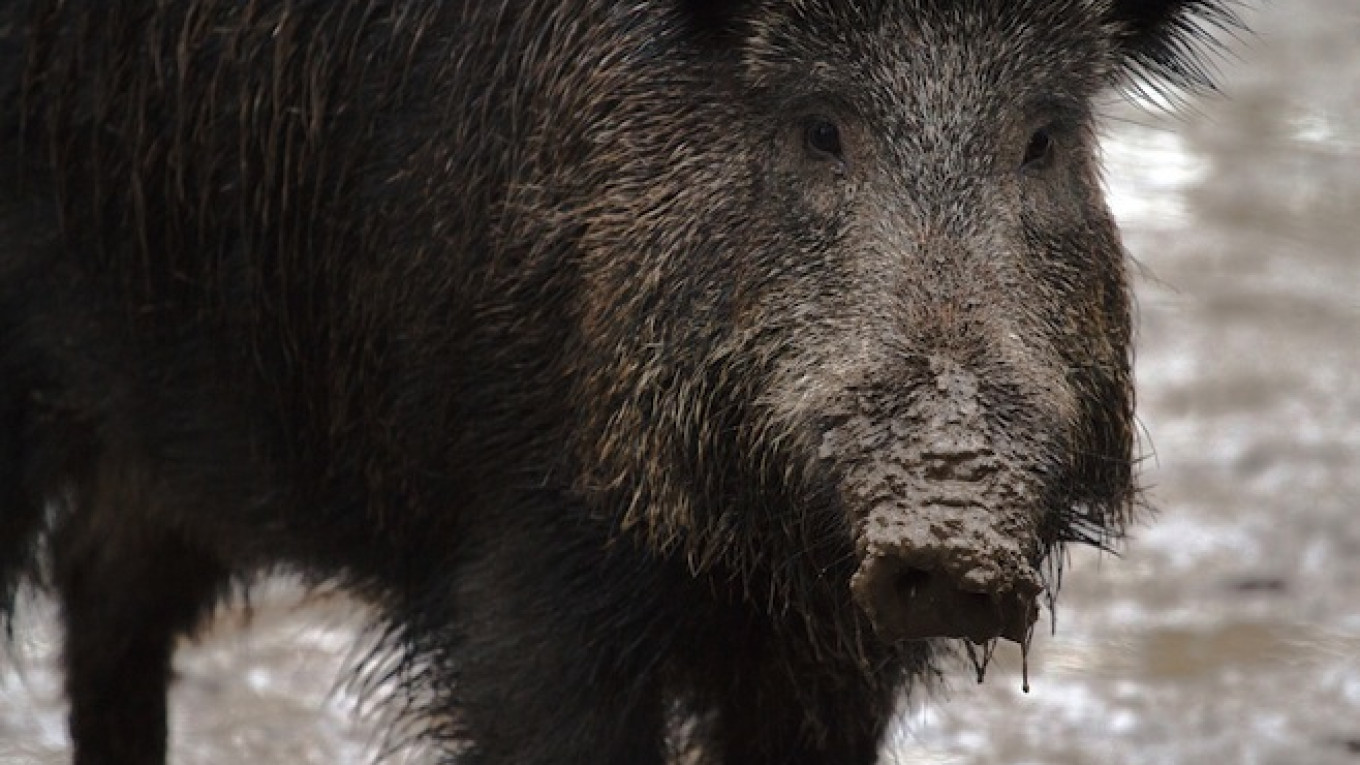Wild boars that have invaded Latvia's capital Riga and attacked residents could be captured and moved to NATO's Adazi military training area north of the city, the head of the Baltic nation's hunter's association said.
"Military training that is conducted there would not affect them much," Haralds Barviks of Latvia's LATMA hunting association said, Russian news agency RIA Novosti reported.
Some Riga officials, however, see a major problem with Barviks's proposal — they suspect the boars are originally from the training area, which is located some 20 kilometers northeast from Riga,and have possibly left because of the increased military activity.
"It's possible that the boars have fled the Adazi training area, where NATO servicemen exercise," Riga's Deputy Mayor Andris Ameriks told Baltkom radio this spring when the boar invasion reached a peak.
While Ameriks noted that wild boars often come into the city to search for food in the winter, he said the boars'' "appearance in the capital in summer time is a unique phenomenon."
Ameriks's boss, Mayor Nils Usakovs, disagreed, however, with the hypothesis of the boars' possible Adazi origins, saying: "No, these are ours, Riga boars, who have lived here historically," Regnum news portal has reported.
In May, a wild boar attacked a Riga woman who was walking her dog, Latvia's Delfi news portal reported. The woman managed to flee, but her dog was injured by the boar and was taken to a veterinary clinic for treatment, the report said.
Some of the boars in Riga have already been captured and released in a forest away from the city, Delfi reported.
The hunting association's Barviks said that boars captured from now on will receive identifying marks attached to their ears, RIA Novosti reported.? The marks would allow animal control officials to "trace whether these are Riga boars or not," he was quoted as saying. "So that it becomes clear where they migrate and how they behave."
A Message from The Moscow Times:
Dear readers,
We are facing unprecedented challenges. Russia's Prosecutor General's Office has designated The Moscow Times as an "undesirable" organization, criminalizing our work and putting our staff at risk of prosecution. This follows our earlier unjust labeling as a "foreign agent."
These actions are direct attempts to silence independent journalism in Russia. The authorities claim our work "discredits the decisions of the Russian leadership." We see things differently: we strive to provide accurate, unbiased reporting on Russia.
We, the journalists of The Moscow Times, refuse to be silenced. But to continue our work, we need your help.
Your support, no matter how small, makes a world of difference. If you can, please support us monthly starting from just $2. It's quick to set up, and every contribution makes a significant impact.
By supporting The Moscow Times, you're defending open, independent journalism in the face of repression. Thank you for standing with us.
Remind me later.


